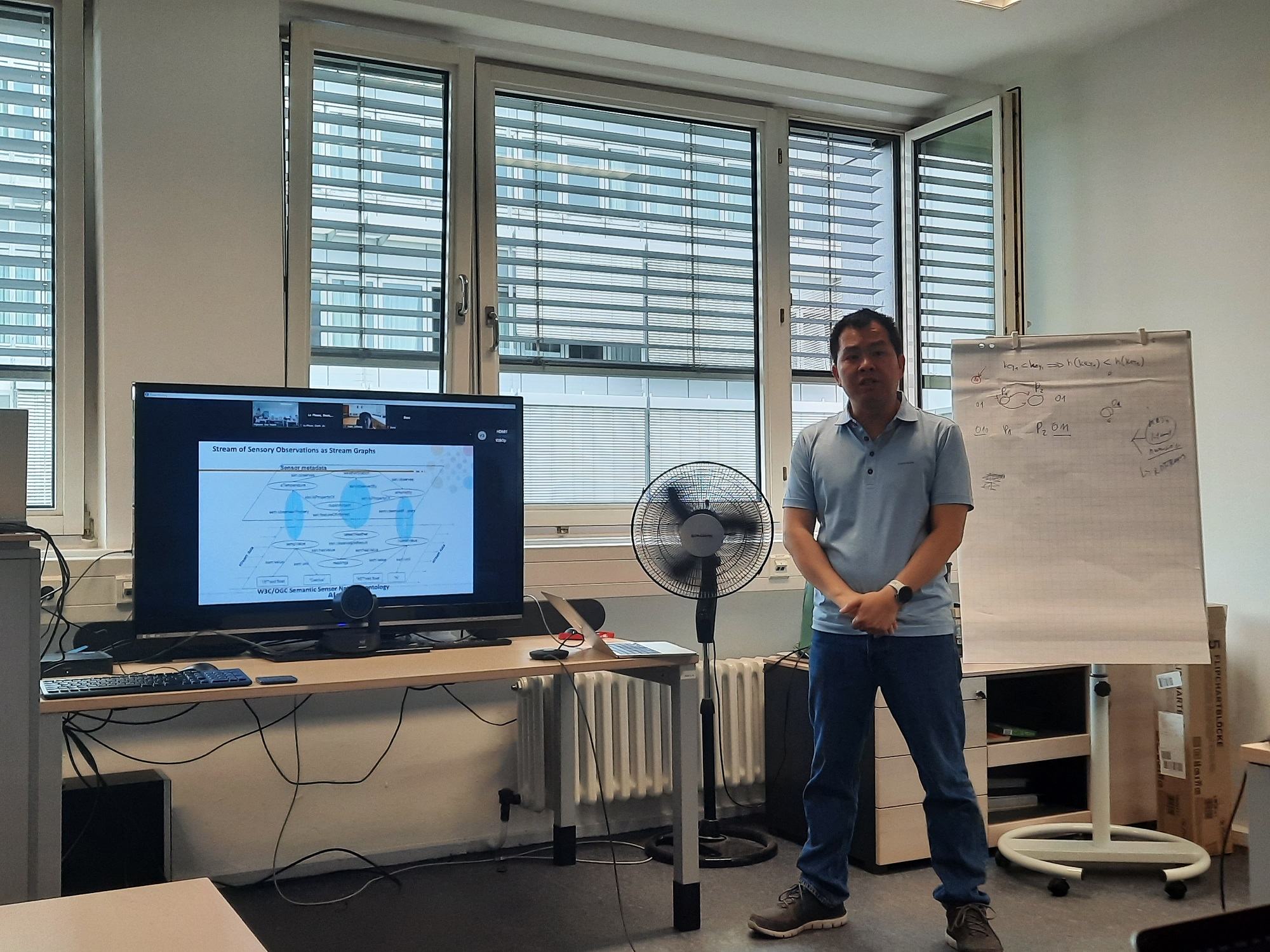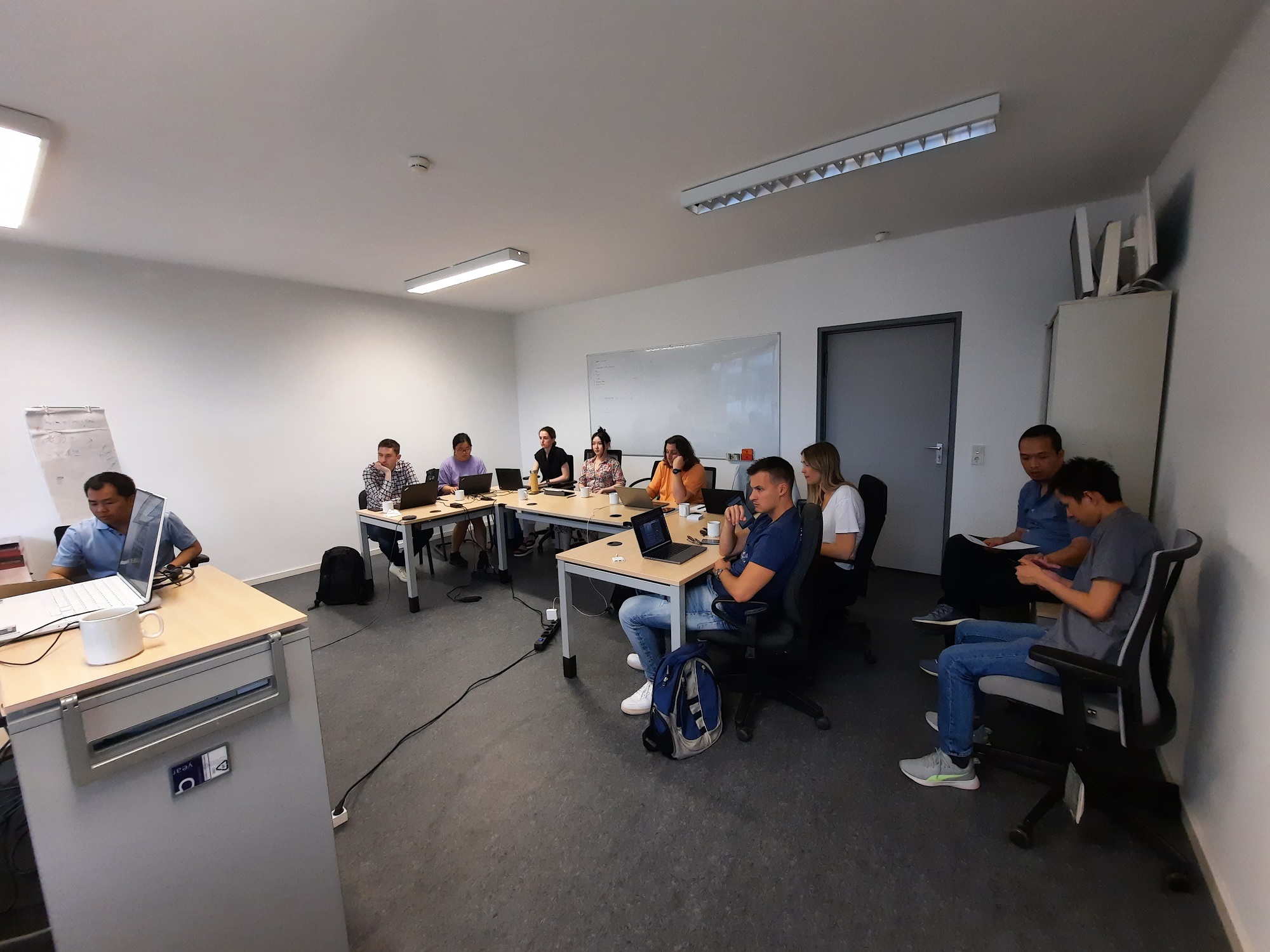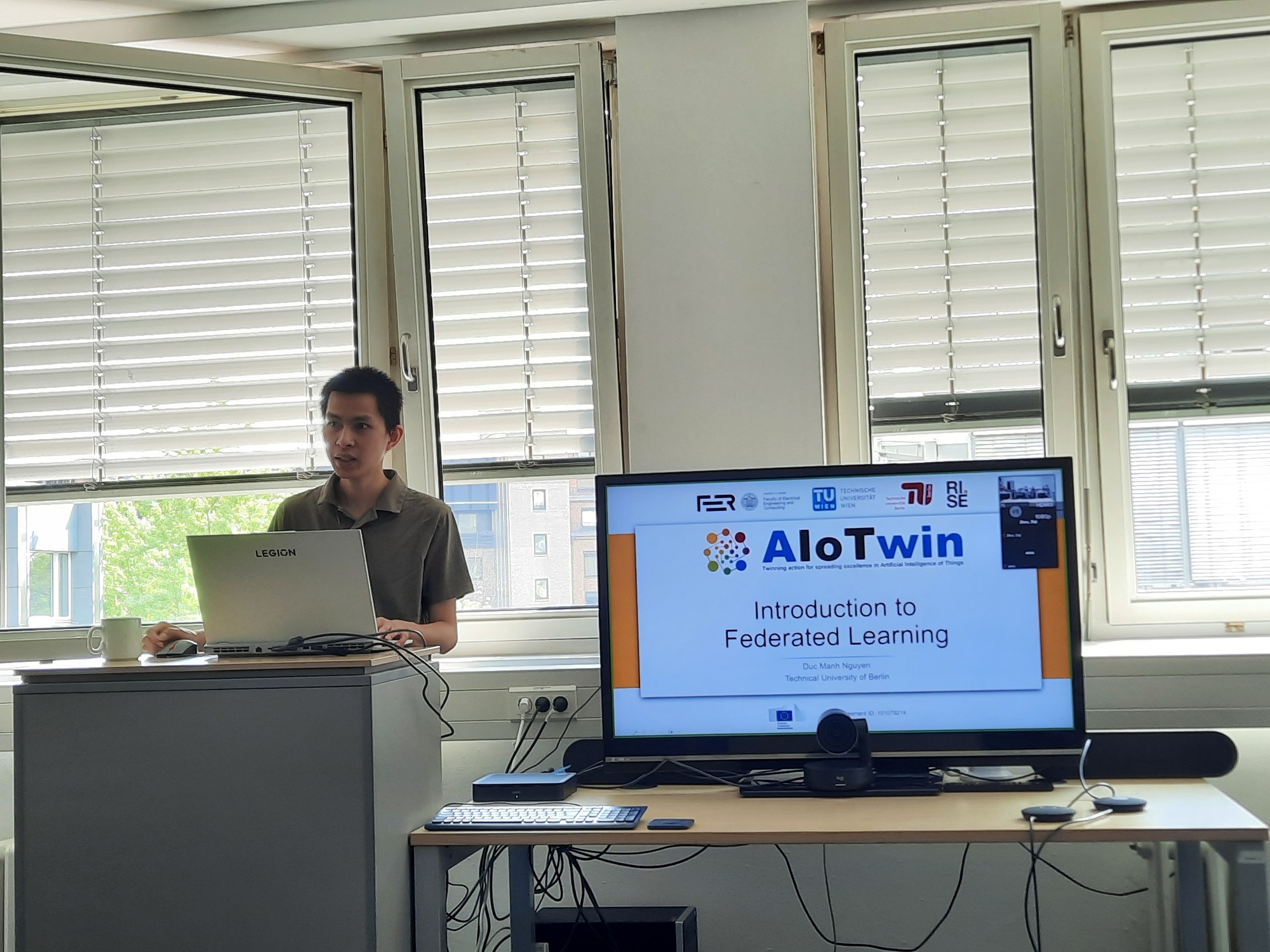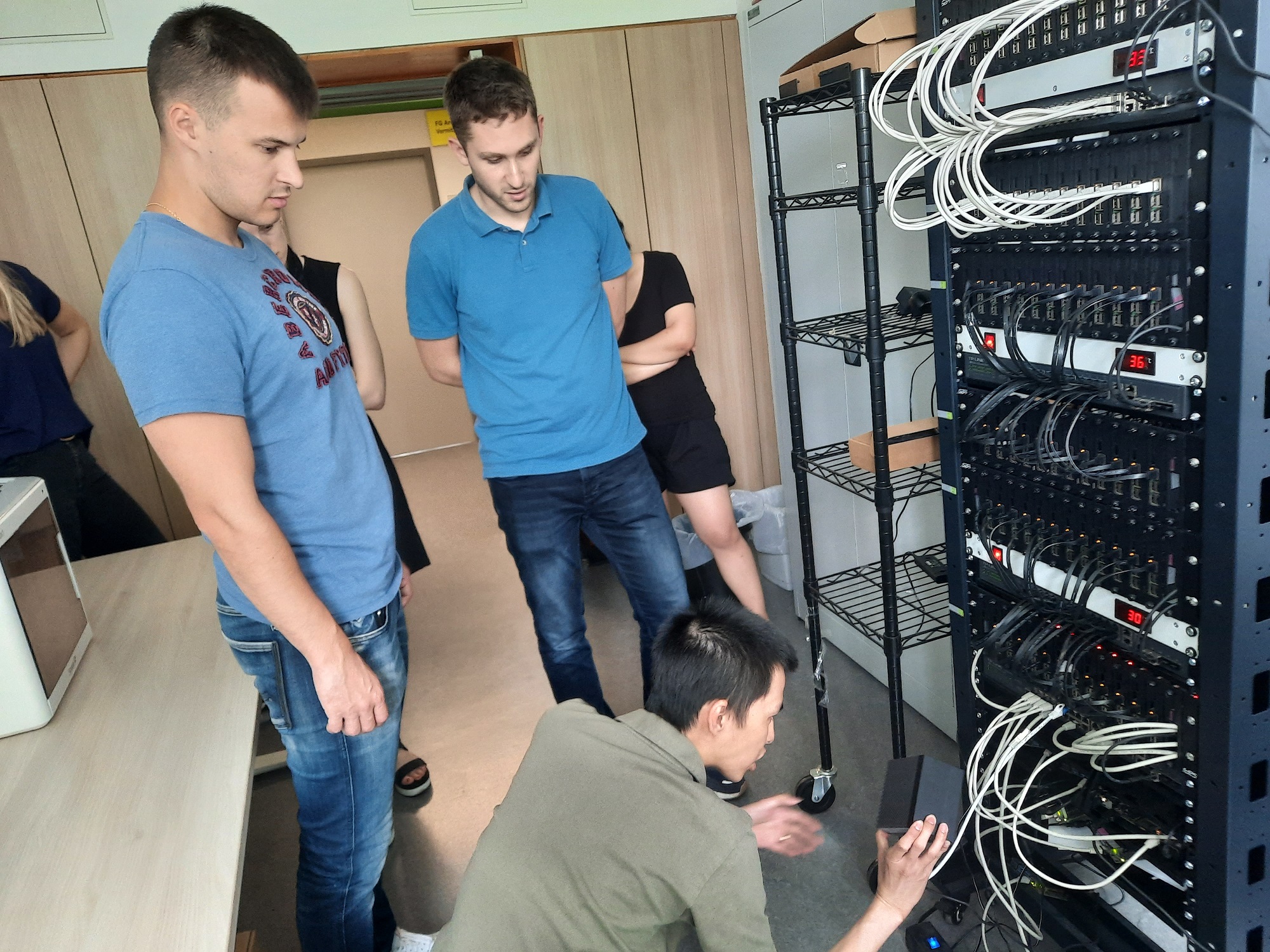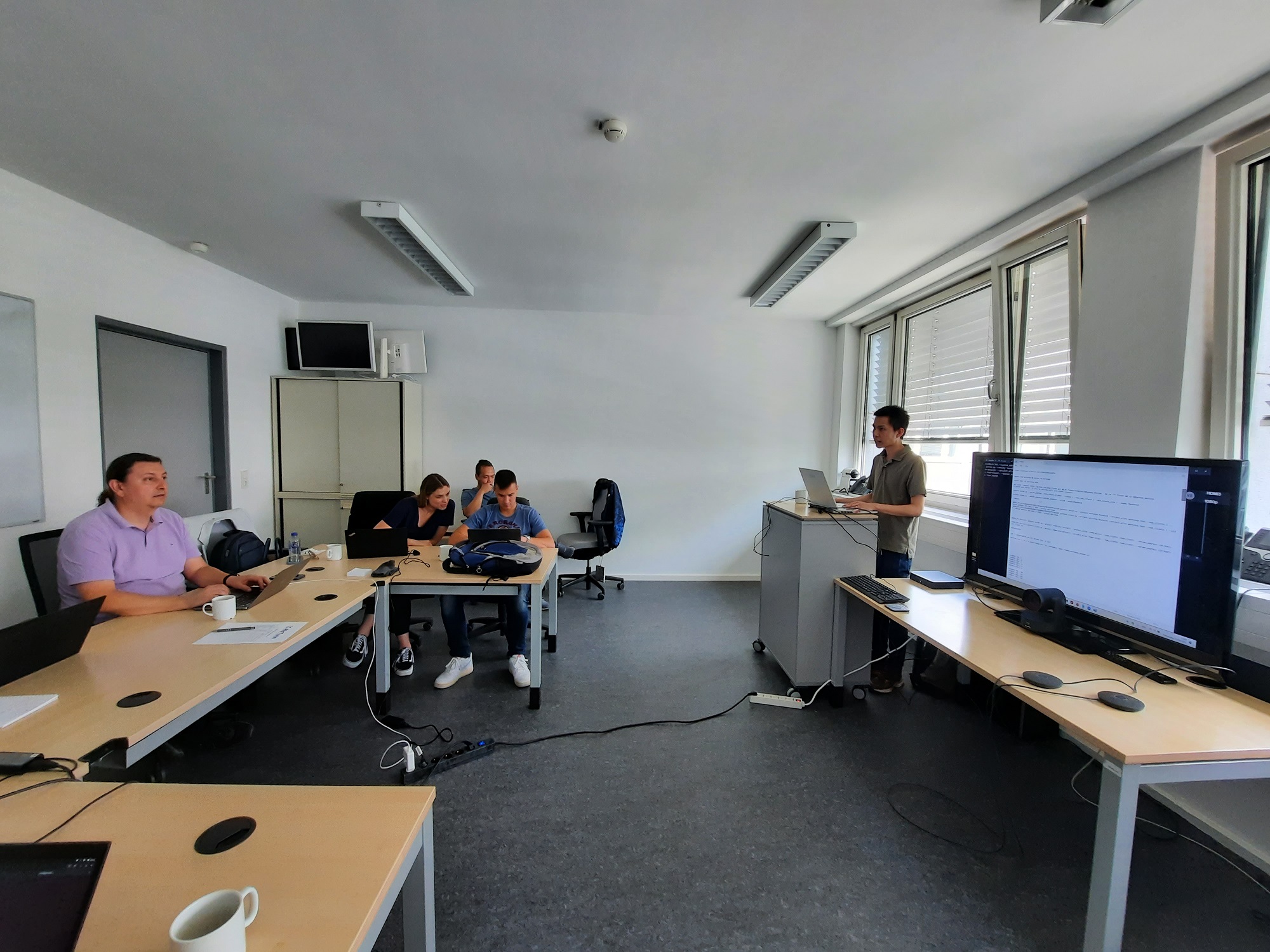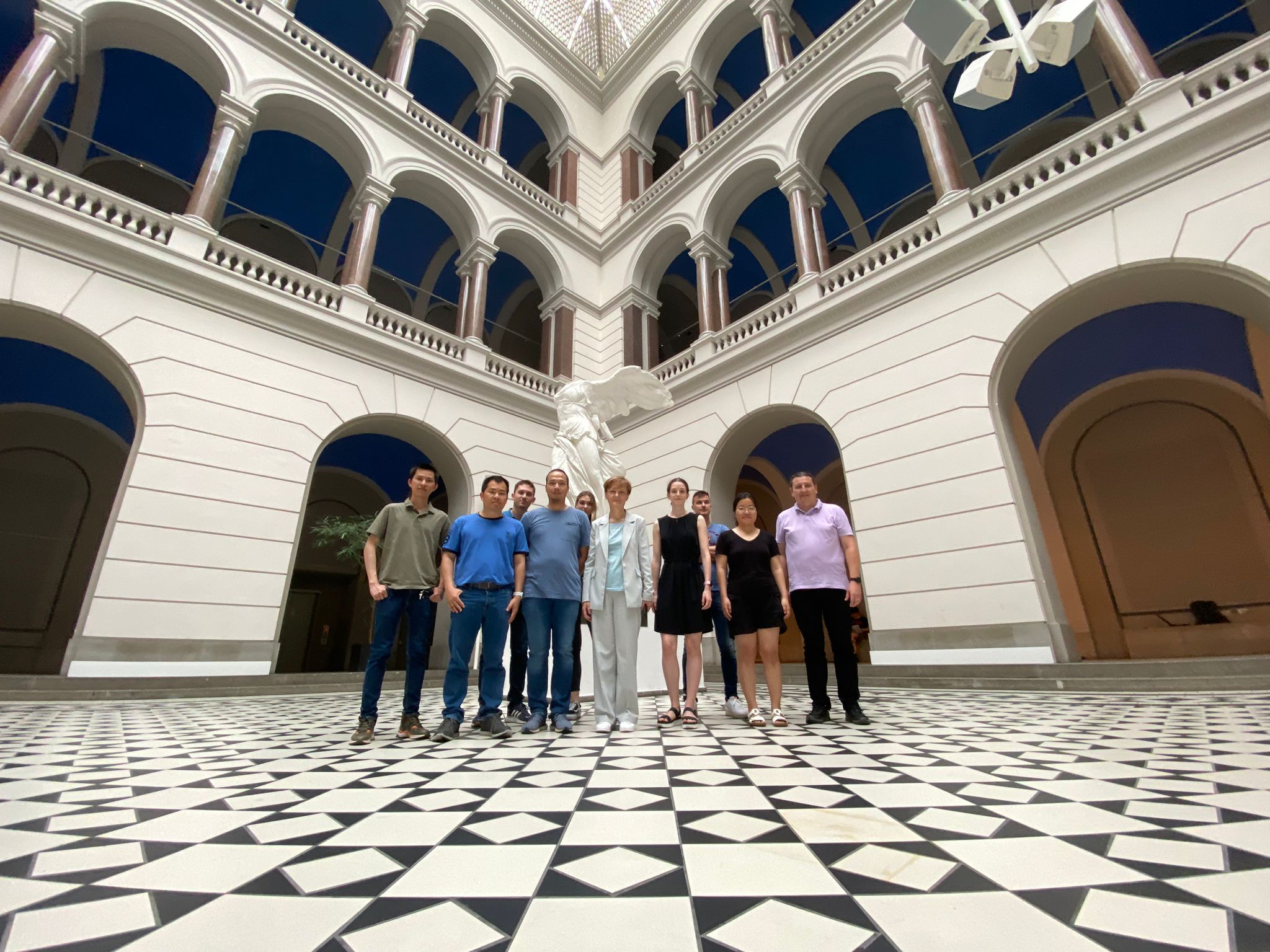Between June 20th and June 22nd, 2023, TU Berlin (TUB) hosted an intensive short-term training workshop on Knowledge Graphs, AI Models with VisionKG, and Learning on Edge Devices with Flower. Through this workshop, participants from UNIZG-FER, TUW and TUB gained valuable insights into the latest advances and practical applications of these technologies. The first day of the workshop focused on Knowledge Graphs and AI Models, featuring sessions that explored Vision Knowledge Graph (VisionKG) – an original framework developed at TUB that interlinks, organizes and manages visual datasets via knowledge graphs and Semantic Web technologies. On the second day, the workshop shifted its focus to Learning on Edge Devices, where participants had the opportunity to learn about Flower, an innovative framework for decentralised machine learning. In addition, TUB demonstrated the unique edge-computing infrastructure consisting of a rack with Raspberry Pi 3, Raspberry Pi 4, Jetson Nano and Jetson TX2 devices which serves as a large-scale FL testbed. Through hands-on activities, attendees deepened their understanding of the potential of edge computing for machine learning in real-world scenarios. The third day of the workshop included a brainstorming session on joint research activities and publication opportunities. The workshop not only deepened the participants' knowledge of these cutting-edge technologies but also ignited a passion for further exploration and innovation in the field of AI and machine learning.
Workshop Description
The main objective of the event was to explore how knowledge graphs can enhance the training of AI models. The workshop was designed to cover the foundational aspects of knowledge graph technologies, federated learning, and the deployment of these techniques. The training program consisted of three lectures and four hands-on sessions, providing participants with both theoretical understanding and practical experience.
The first part of the workshop introduced participants to knowledge graph technologies, emphasizing their significance in the context of AI model training. Knowledge graphs are graphical representations of knowledge that enable the organization and retrieval of information in a structured manner. Participants gained insights into how knowledge graphs can be leveraged to enhance the learning process of AI models, enabling them to make more informed and context-aware decisions.
The second part of the workshop included tutorials offering a practical introduction to federated learning (FL), focusing on the collaborative execution of FL pipelines across advanced and diverse edge devices, such as Jetson Nano, TX2, and Orin. These tutorials equipped participants with hands-on expertise in FL deployment and laid the groundwork for an in-depth exploration of the complex interplay between FL and cutting-edge fields such as robotics, autonomous vehicles, and IoT systems. This setup effectively bridged the gap between theory and practice, illustrating the pivotal role of federated learning in enhancing pervasive intelligence across complex networks.
The third part of the workshop focused on the deployment of knowledge graph technologies and federated learning models. Participants learned practical strategies for implementing these techniques in real-world scenarios. This includes considerations for scalability, integration with existing systems, and optimizing performance. Hands-on exercises allowed the participants to apply their knowledge in a practical setting, reinforcing their understanding of deployment strategies.
Throughout these tutorials, participants had opportunities to set up their own pipelines on various edge devices in collaboration with their teammates. They engaged in exploring the nuances and potentials of FL in hands-on sessions. The contents of the event were comprehensive, covering everything from FL fundamentals to practical training, offering both technical knowledge and practical insights.
During the brainstorming session we discussed joint research opportunities: a topic of common interest relates to adding an edge orchestration framework such as K3s into an FL pipeline. A hierarchical environment for FL experimentation in this context is of interest to three partners: TUB, TUW and UNIZG-FER. Furthermore, TUB and UNIZG-FER are interested in FL pipelines focusing on time-series data and the emerging topic of semantic communications. The identified application areas and use cases are primarily from the following two domains: smart traffic and precision agriculture.
